Dreyfus affair
The opposition of the Radicals and Socialists resulted in a centrist government with policies oriented towards economic protectionism, a certain indifference to social issues, a willingness to break international isolation, the Russian alliance, and development of the colonial empire."[9] The letters, real and fake, provided a convenient excuse for placing the entire Dreyfus dossier under seal, given that exposure of the liaison would have 'dishonoured' Germany and Italy's military and compromised diplomatic relations.Antisemitism did not spare the military, which practised hidden discrimination with the "cote d'amour" (a subjective assessment of personal acceptability) system of irrational grading, encountered by Dreyfus in his application to the Bourges School.To find the culprit, using simple though crude reasoning,[30] the circle of the search was arbitrarily restricted to suspects posted to, or former employees of, the General Staff – necessarily a trainee artillery[Note 3] officer.[Note 4] The ideal culprit was identified: Captain Alfred Dreyfus, a graduate of the École polytechnique and an artillery officer, of the Jewish faith and of Alsatian origin, coming from the republican meritocracy.[63] He repeated himself on 29 November 1894 in an article by Arthur Meyer in Le Gaulois, which in fact condemned the indictment against Dreyfus and asked, "How much freedom will the military court have to judge the defendant?Seven judges unanimously convicted Alfred Dreyfus of collusion with a foreign power, to the maximum penalty under section 76 of the Criminal Code: permanent exile in a walled fortification (prison), the cancellation of his army rank and military degradation, also known as cashiering.[91] At the last minute, at the initiative of General Mercier, a law was passed on 9 February 1895, restoring the Îles du Salut in French Guiana, as a place of fortified deportation so that Dreyfus was not sent to Ducos, New Caledonia.He was the chief architect of the rehabilitation of his brother and spent his time, energy and fortune to gather an increasingly powerful movement for a retrial in December 1894, despite the difficulties of the task:[95] After the degradation emptiness was around us.[citation needed] Major Georges Picquart was assigned to be head of the staff of the Military Intelligence Service (SR) in July 1895, following the illness of Colonel Sandherr.[130] Esterhazy benefited from special treatment by the upper echelons of the army, which was inexplicable except for the General Staff's desire to stifle any inclination to challenge the verdict of the court martial that had convicted Dreyfus in 1894.[135] Outraged by the acquittal of Esterhazy, Zola published a 4,500-word article on the front page of L'Aurore in the form of an open letter to President Félix Faure (Clemenceau thought up the headline J'Accuse...!).(On 2 February, Octave Mirbeau, Laurent Tailhade, Pierre Quillard and Georges Courteline, among others, in L'Aurore signed an "Address to Émile Zola" assuring him of their support "in the name of justice and truth".)Stéphane Mallarmé declared, "[I am] imbued by the admirable actions [of Zola]"[150] and Jules Renard wrote in his diary: "From tonight I hold on to the Republic that inspires respect in me, a tenderness in me that I do not know.Roger Martin du Gard reported that "Individuals with Jewish features were grabbed, surrounded, and roughed up by delirious youths who danced round them, brandishing flaming torches, made from rolled-up copies of L'Aurore.At Saint-Etienne, posters read, "Imitate your brothers of Paris, Lyon, Marseille, Nantes, Toulouse ... join with them in demonstrating against the underhand attacks being made on the Nation."Godefroy Cavaignac, the new minister of war and a fierce supporter of anti-revisionism, definitely wanted to prove the guilt of Dreyfus and from there "wring the neck" of Esterhazy, whom he considered "a pathological liar and blackmailer".[159] On 4 April, the newspaper Le Siècle published Lettre d'un Diplomate, the first of four documents, that were of critical importance in exposing Esterhazy's guilt, and enabled the Dreyfusard cause to regain the initiative it had lost with Zola's conviction.On the evening of 13 August 1898, Louis Cuignet, who was attached to the cabinet of Cavaignac, was working by the light of a lamp and observed that the colour of the lines on the "faux Henry" paper header and footer did not correspond with the central part of the document.[182] The Supreme Court considered the Dreyfus affair in the context of press campaigns against the Criminal Division, the magistrates being constantly dragged through the mud in nationalist newspapers from the Panama scandals.[192] Hannah Arendt writes that fear of an international boycott of the Paris Exposition of 1900 was what "united the disrupted country, turned parliament in favor of a retrial and eventually reconciled disparate elements" of France in a way "Clemenceau's daily editorials, Zola's pathos, Jaurès' speeches and popular hatred of the clergy and aristocracy" had not.At the end of 1898, he learned with astonishment the actual size of the affair, about which he knew nothing: the accusation by his brother against Esterhazy, the acquittal of the traitor, Henry's confession and suicide, and the reading of the record of investigations of the Supreme Court, which he received two months after its publication.In addition, the note allegedly annotated (by Kaiser Wilhelm II), which General Mercier had alluded to at the Rennes trial, which is reported by the press to have influenced the judges of the Military Court.After serving for a year as commander of the artillery depot at Fort Neuf de Vincennes, Major Dreyfus retired in June 1907; a decision taken in part because of recurrent tropical fevers and chronic fatigue arising from the strain of his imprisonment.The Dreyfus affair shook Herzl's view on the world, and he became completely enveloped in a tiny movement calling for the restoration of a Jewish State within the biblical homeland in the Land of Israel.Yet Jews, despite the state-sanctioned efforts of the emancipation movement, were never truly accepted into society and were often deemed aliens and outsiders,[246] even when they showed extreme devotion by fighting courageously in the wars of their respective countries.Éric Zemmour, a far-right political opponent of Macron who had said that France's Second World War collaborationist leader Philippe Pétain, who had assisted deportation of French Jews to Nazi death camps, had, in certain cases, saved their lives, said repeatedly in 2021 that the truth about Dreyfus was not clear, his innocence was "not obvious".In France, lawmakers have proposed a number of bills that would extend protections to minority communities, such as prohibiting discrimination based on ethnicity or religion, and providing additional resources for victims of hate crimes.Chirac stated that "the combat against the dark forces of intolerance and hate is never definitively won", and called Dreyfus "an exemplary officer" and a "patriot who passionately loved France".[257] Franz Kafka's short story "In the Penal Colony" drew inspiration from Devil's Island and the debate about justice and punishment the Dreyfus affair provoked in French society.
Dreyfus
in 1894, the year he was prosecuted




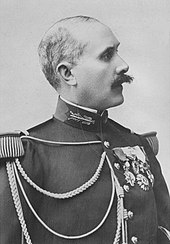

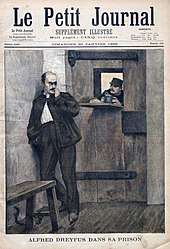


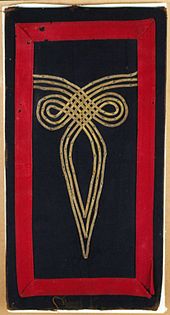






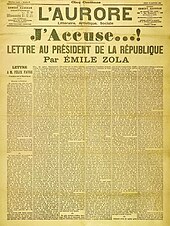

cropped from a stereograph sold by F. Hamel , Altona- Hamburg ...; collection Fritz Lachmund








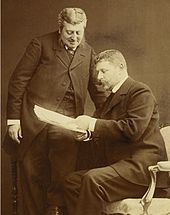


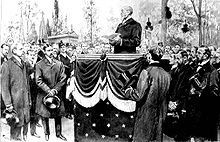


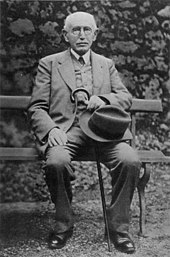






The Dreyfus Affair (film series)DreyfusInvestigation and arrestTrial and convictionGeorges Picquart's investigationsOther investigationsJ'Accuse...!ResolutionBibliographyAlfred DreyfusAlphonse BertillonArmand du Paty de ClamAuguste MercierÉmile ZolaFerdinand Walsin EsterhazyGeorges PicquartGeorges-Gabriel de PellieuxHubert-Joseph HenryJean SandherrLucie DreyfusLudovic TrarieuxMaximilian von SchwartzkoppenTheodor HerzlAntisemitismJewish historydiscriminationHistoryTimelineReferenceIHRA definitionJerusalem DeclarationNexus DocumentThree DsGeographyArgentinaAustraliaAustriaBelarusBelgiumCanadaChineseChileanCosta RicanEuropeFrance21st-centuryGermanyGreeceHungaryNew ZealandNorwayPakistanPalestineRomaniaRussiaImperial RussiaSoviet UnionStalinistSaudi Arabiatextbook controversySouth AfricaMatar judíosSwedenTurkeyUkraineUnited KingdomConservative PartyLabour Party21st centuryVenezuelaAcademicEconomicGaza War ('08–'09)Gaza war ('23–'25)Holocaust denialJewishMedievalNazismNeo-NaziStrasserismOlympicRacialReligiousChristianChristian IdentityCreativityIslamicNation of IslamSecondaryCOVID-19ZionistAntisemitic tropesAndinia PlanBlood libelCohen PlanCultural BolshevismCultural MarxismDeicideFranklin ProphecyInternational Jewish conspiracyJewish war conspiracy theoryJudensauJudeo-BolshevismŻydokomunaJudeo-MasonismKosher taxRootless cosmopolitanDoctors' plotSlánský trialSelf-hating JewStab-in-the-back mythZOG conspiracyThe Barnes ReviewCulture of CritiqueCurrency WarsThe Dearborn IndependentEthnic Cleansing (video game)La France juiveHitlers Zweites BuchHunter1988 Hamas CharterThe International JewLa Libre ParoleThe LightMein KampfOn the Jews and Their Lies
